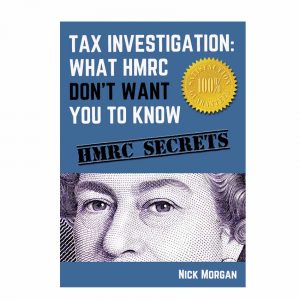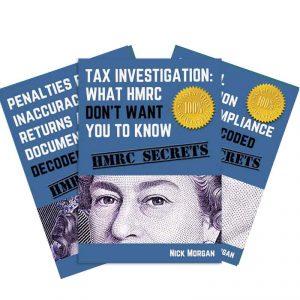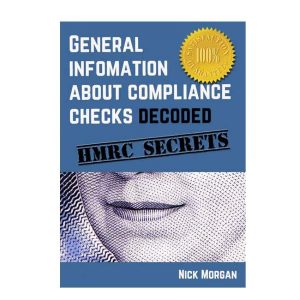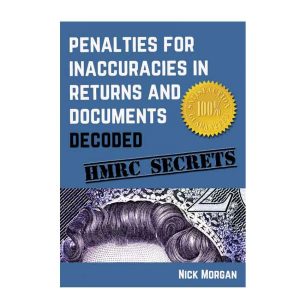What Happens During A Compliance Check?
The above is an extract from the HMRC document “General information about compliance checks” this is issued when HMRC open what they call a “check”. The four page document is confusing and frightening. Here we look at the “What happens during a compliance check?” paragraph, explain what it is and what it’s really saying. You can download the whole HMRC factsheet here. If you think this is useful you might want to read the whole ebook Compliance Checks Decoded.
“We will always tell you what we are checking. If we find that we need to extend the scope of our check we, we will tell you…”
So they’ll tell me what they are checking and keep me informed about how the investigation is going, that sounds good – right?
The truth is that HMRC can’t quite decide whether it’s better for them to tell you why they are investigating you or not and in the last two decades they have swung from one extreme to another.
In 1996 they would tell you why an investigation was being launched, but in 1997 they reversed that policy. A decade later they started to experiment with “Openness and Early Dialogue”. The bottom line is HMRC might be informative and helpful or they might not. You will just have to ask and find out, you might want to tell them that the investigation would be faster if you knew exactly what they were investigating.
“If you have appointed a representative, you can ask us to deal directly with them during the check. We may also tell them that we have started a check. We will only give your representative details of the check if it relates to taxes that you have authorised us to contact them about…”
This sounds more straightforward is it?
Yes, unless you specifically request it, HMRC will deal directly with you. You must authorise a third party (be it an accountant or tax adviser or a friend) to act on your behalf if that is your wish. But – be warned – it’s you that has the responsibility if your representation messes up.
“We will ask you to give us any information or documents that we may need during the check. In some cases we will ask to visit your business premises, if you have any. We normally only ask to visit you at home if you run your business from there. If you are unsure why we are asking for something, please speak to the officer dealing with the check and they will explain why they need it. If you cannot do what we ask, or if you think that something we have asked for is unreasonable or not relevant to the check, please tell the officer dealing with the check. They will consider your reasons carefully and if they still think they need it, they will tell you why.”
There is a lot of “asking” and “needing” here isn’t there?
Yes, now you are beginning to get it! What HMRC need and what they are entitled to see (or do) are often very different things.
If you believe taxman’s requests are unreasonable explain why you think this. It is up to the HMRC to provide full details on why they need the information. Ultimately if HMRC ask for something other than your business records you can appeal to the Tax Tribunal on the grounds that it is not reasonably required for the investigation.
The threat of the Tax Tribunal may well stop HMRC asking, particularly if they know they are being ‘cheeky’.
“We will ask you to give us any information or documents that we may need during the check. In some cases we will ask to visit your business premises if you have any. We normally only ask to visit you at home if you run your business from there…”
This sounds like they have Gestapo-like powers!
HMRC has formidable powers but there are limitations:
[fancy_list style=”arrow_list”]
- The information they seek must be reasonably required for the purpose of checking your tax position. For example they can’t make you hand over personal bank statements without good reason – for example they need to find some significant problems with your business records or have understandable suspicions about the financing of your personal assets.
- They have no right to meet with you or members of your staff. Pressure may be put on you to attend a meeting, but you are not legally required to go.
- HMRC have a right to enter your business premises and inspect your business records. You should only let them in when you are good and ready. You have a right to refuse them entry and this trumps their rights!
- If they come to your business premises armed with with written authorisation from the Tax Tribunal you can still refuse entry. The worst they can do is stick you with an initial penalty of £300 and a further £60 per day until you allow the inspection. That may sound like a chunk of cash, but it may be a small price to pay for the chance to get your house in order.
[/fancy_list]
HMRC will “ask [for]… information or documents… [they] may need.” It’s up to you (and your representative) to know the limits of their power.
What’s this whole paragraph all about?
If you read between the lines this paragraph tells you about the relationship between HMRC and tax advisors.
Historically tax advisors and HMRC have often been just a little bit too matey, they do – after all – speak the same language and you’ll find that many tax advisers are former HMRC employees.
Then (in the mid to late naughties) HMRC started getting much tougher and many tax advisers found that this matey relationship was not working out so well for them (or their clients). The good ones became much more challenging.
HMRC then said, “Look if you are going to have the audacity to competently defend your clients, we are going to cut you out of the equation and go to the tax payer directly.”
HMRC are yet to make good on this threat, but if you have a tax advisor you must make sure that they are informed about what is happening. If you don’t tell them they can’t help you. HMRC know that.








